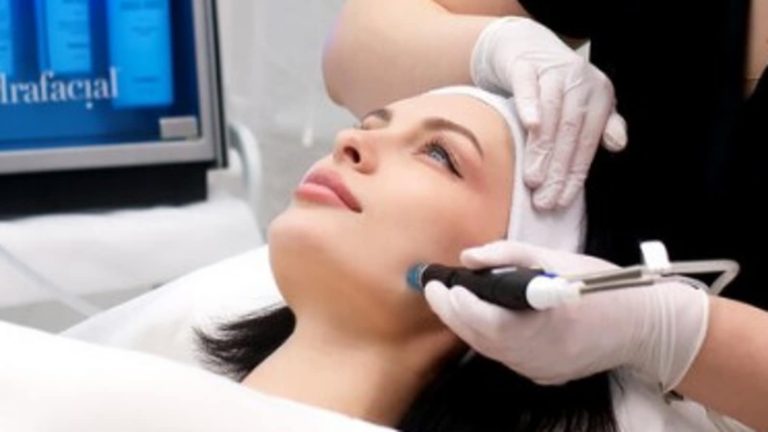As the wedding day approaches, every bride wants to look her best. The pressure for glowing, clear skin is intense, and with so many skincare treatments available, choosing the right one can be overwhelming. Hydrafacials have gained popularity, but is it really worth it for brides who want flawless skin on their big day? Let’s break down the benefits and considerations.
What is a Hydrafacial?
Dr. Amit Bangia, Associate Director – Dermatologist at Asian Hospital, explains, “Hydrafacial is a popular non-invasive treatment that uses hydra-dermabrasion technology to cleanse and hydrate your skin in under 60 minutes.” The procedure uses a specialized machine to deliver serums and antioxidants to the skin while removing impurities, oil and dead skin cells.
“It addresses many skin concerns, including acne, dehydration, uneven skin texture, and aging,” Bangia continues. The treatment consists of four main steps: cleansing, exfoliation, skin hydration and serum infusion, which leave the skin rejuvenated and radiant.
Can a Hydrafacial transform your wedding day look?
One of the main reasons brides choose a Hydrafacial is its ability to instantly improve the appearance of the skin. This can be especially beneficial for brides looking to boost their skin’s natural glow before the wedding day. Bangia further adds, “HydraFacial is recognized for providing the best skin of your life, with benefits such as reduced pore size, lightening of scars, and reduced wrinkles and fine lines.”
Unlike other treatments that may require days of recovery, the Hydrafacial requires little to no downtime. “The treatment is a popular alternative for people looking for a quick and simple solution to brighten their skin. There is no downtime afterwards, making it a great option for those with a busy schedule,” says Bangia.
The right time to do it
Dr Mandeep Singh, HOD of Plastic, Dermatology and Aesthetic Surgery at Paras Health Gurugram, advises, “It is important to schedule the treatment at least 7-10 days before the wedding to allow the skin to settle down, such as mild redness or tenderness. it can happen temporarily after the procedure.” She also recommends consulting a certified practitioner and avoiding the treatment if you have active skin infections, rosacea, or severe acne, as it can worsen these conditions. In addition, she emphasizes the importance of maintaining a proper skin care routine, including sunscreen and gentle moisturizers, which will help prolong the results of the treatment.
Dr. Amit Bangia further suggests, “For someone who is getting married, Hydrafacial can be a great option, but ideally, try it around 6 months before the wedding. This gives you enough time to see how your skin reacts. The last Hydrafacial should be scheduled at least 1-2 weeks before the wedding to ensure your skin looks radiant without potential redness or irritation.

